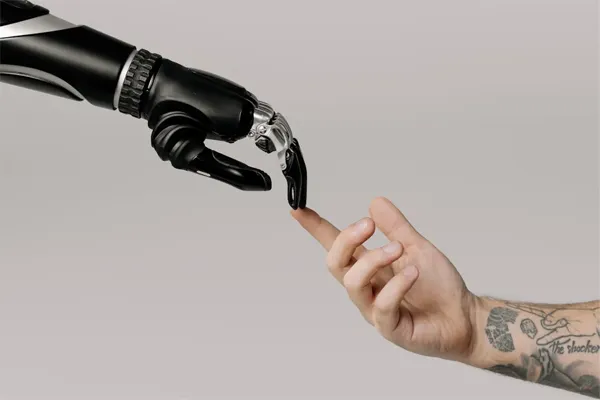
AI and Mental Health
How to Embrace the Promise Without Ignoring the Risks
The rise of artificial intelligence (AI) is changing nearly every aspect of our lives—from how we work, shop, and communicate to how we access information and support. As a therapist, I’ve found myself increasingly reflecting on how AI intersects with mental health. While it brings real opportunities for support and connection, it also introduces new risks we cannot afford to ignore.
In some ways, the conversation feels familiar. We’ve already seen how social media, introduced with promises of connection and self-expression, has produced both positive impacts and significant harm, especially among younger generations. AI, like social media, is not inherently “good” or “bad.” Its impact depends on how we engage with it, what boundaries we set, and how much we prioritize human connection, meaning, and agency.
The Potential: Where AI Supports Mental Health
AI is already being used in mental health spaces in impressive and meaningful ways:
1. Accessibility
Many AI-powered chatbots, mental wellness apps, and virtual therapists offer immediate, 24/7 support to people who might otherwise face long waitlists, high costs, or stigma. For someone struggling with anxiety at 2 a.m., a supportive AI tool can feel like a lifeline.
2. Early Detection
AI is being developed to help detect patterns in speech, text, or facial expressions that may indicate depression, suicidal ideation, or cognitive decline. This technology could alert clinicians and caregivers earlier, enabling more timely intervention.
3. Support for Therapists
AI can help therapists streamline note-taking, manage administrative tasks, and even analyze therapy session transcripts for patterns or insights. These tools have the potential to reduce burnout and improve care.
The Risks: Where AI Could Undermine Mental Health
Just like social media, the rapid expansion of AI comes with real psychological and ethical concerns:
1. Dehumanization of Care
Mental health is deeply relational. No algorithm can truly replace the nuance, empathy, or human presence that therapy requires. If AI becomes a low-cost substitute for human care—especially in underserved communities—we risk widening inequities and offering superficial support where deeper healing is needed.
2. Overreliance on Technology
We’re already seeing how some people turn to devices for comfort rather than to themselves or their relationships. If we begin using AI tools to avoid emotional discomfort, we may lose opportunities to build resilience, connection, and self-awareness.
3. Data Privacy and Exploitation
Mental health data is among the most sensitive information we can share. If AI apps aren’t regulated or held to ethical standards, there's a risk that private emotions and vulnerabilities could be commodified, misused, or exposed.
4. Blurring the Line Between Real and Artificial
As AI becomes more human-like in tone and responsiveness, we may become emotionally attached to it in ways that blur our understanding of real connection. For individuals who already struggle with intimacy, trust, or loneliness, this can create false safety and further emotional distancing from others.
So How Can We Prepare?
1. Approach AI Tools as Supplements, Not Substitutes
AI can be a tool in your mental health toolkit, but not the toolbox itself. Whether it’s an app to track mood or a chatbot that helps you reflect, these are aids—not replacements for human support, therapy, or introspection.
2. Protect Your Inner Life
In an era where our thoughts, emotions, and even voice tone can be analyzed, protecting your inner world becomes a radical act. Think carefully about what you share, where you share it, and why.
3. Cultivate Emotional Literacy
The more we understand our own emotions, the less likely we are to outsource that understanding to an external system. Naming your feelings, practicing mindfulness, journaling, or engaging in therapy helps you stay grounded in your own authority.
4. Stay Critical, Stay Curious
We can be excited about AI innovation and still question its impact. Ask:
Who benefits from this tool?
Is it empowering me or making me more passive?
Does this deepen my self-understanding, or distract from it?
5. Prioritize Human Connection
In a world that is increasingly digitized, human connection becomes sacred. Make time for face-to-face conversations, emotional vulnerability, and the beautiful messiness of being in real relationship with others. No chatbot can replicate that.
Final Thoughts: Emotional Integrity in the Age of AI
As a therapist, I believe that mental health is not just about managing symptoms—it’s about becoming more fully ourselves. AI may be able to help us on that path, but it cannot walk it for us. Like any powerful tool, it demands reflection, caution, and ethical care.
The challenge of our time is not simply whether AI will change us, but whether we can stay emotionally human in the process. Let’s embrace what helps and stay aware of what hinders. Let’s make room for progress, but not at the cost of presence.
